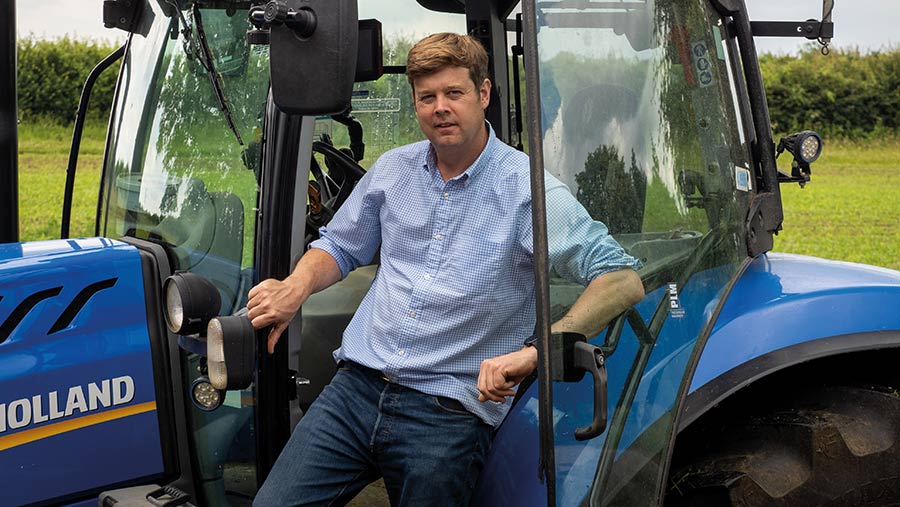Farmer Focus: Rye yields more than expected
 © Kathy Horniblow
© Kathy Horniblow The weather is once again trying its hardest to have an impact on the crops.
The spring showed lots of promise, but we have had 50% of our normal rainfall, and drought stress is starting to show with ripening beginning early and grain filling potential starting to be reduced.
Even with the low rainfall, humidity has been high and rusts and mildews have been challenging in rye and spring wheat.
See also: Analysis: What makes top arable farms more profitable?
We have just finished the rye harvest and I cannot believe that we had above-budget yields after I spent a year trying to kill it with every decision I made.
Everybody said that rye ripens fast, but even I was caught out with the speed it changed from grain filling to cheesy ripe. I have made a note to start cutting a week earlier next year.
The ground will now be chitted, and we will then plant stubble turnips in the next three weeks.
Now that the rye is out of the way we turn our attention to the Womad music festival and then the cereal harvest.
Before the festival we have another tranche of ash that needs cutting down due to a safety risk.
It is so sad seeing all the ash losing canopy, the vista of this area will change massively over the next five years as trees die and are felled.
Winter wheat yields I believe will be average this year and, thankfully, we stuck to budget and did not spend more due to higher prices.
The spring wheat is covered in weeds, but it is a low input cereal in Mid Tier and that is what it is supposed to look like.
It’s hard getting my head around looking at weedy crops, but from an environmental perspective we are ticking all the boxes.
Maize, however, is a different story, with the crop struggling so far this season. We have more than knee-high maize and calf-high maize so the next few weeks will certainly influence how the crop performs.
We could do with a good storm of rain to give the crop moisture to reach its potential.
We have learned that we need to put in a secondary pass after the first cultivation to conserve the moisture, as it’s amazingly easy to dry soils out if they become wet, but incredibly hard to wet them back up without rain.
I hope everyone has a safe and prosperous harvest and look forward to letting you all know how the crops have performed.


